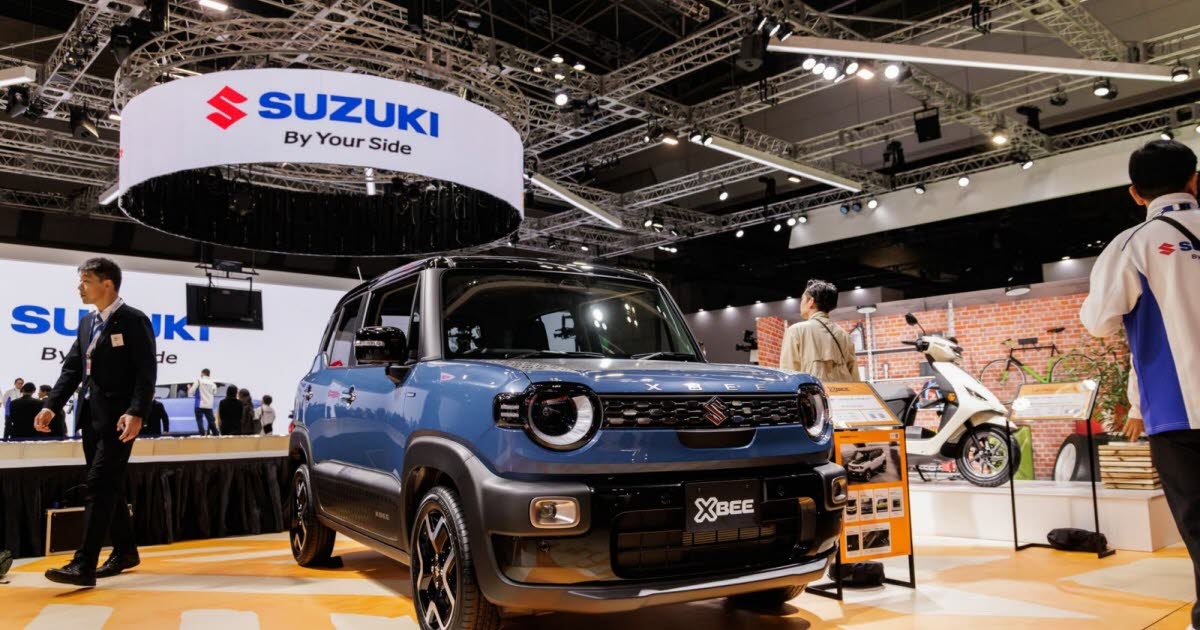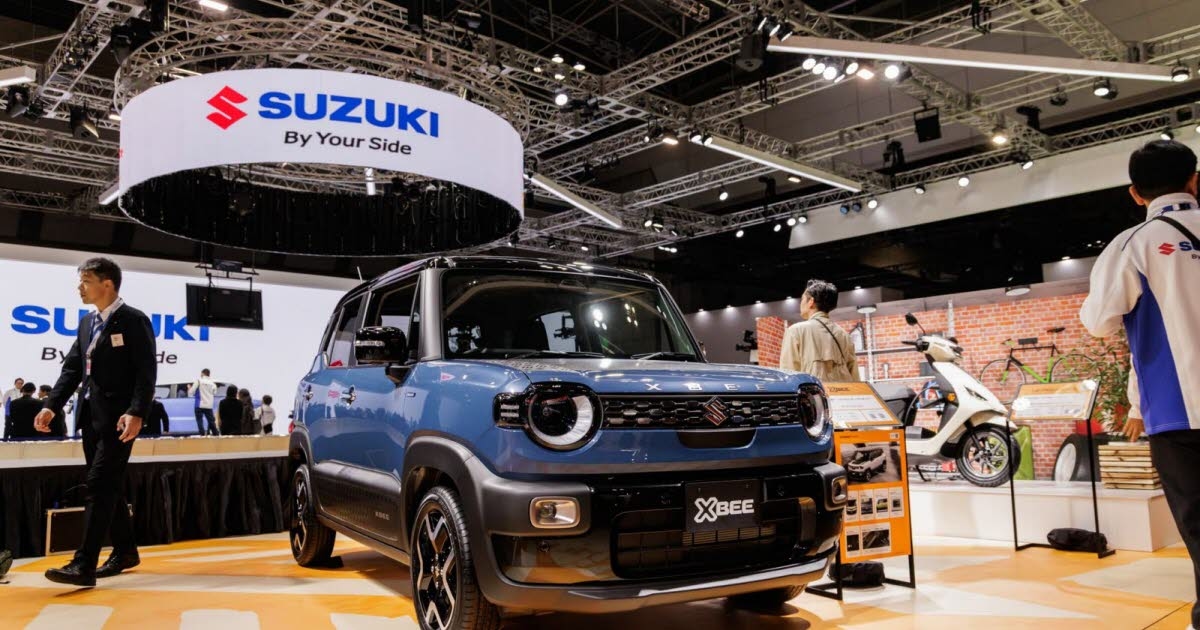Japan Mobility Show. In Tokyo, Suzuki unveils its vision of a future that is more pragmatic than electric.

The Japan Mobility Show 2025, organized by the Japan Automobile Manufacturers Association, opens its doors today. This is an opportunity for Suzuki to present a range of new electric models, from cars and motorcycles to bicycles and marine engines. But above all, the Japanese brand is demonstrating pragmatism by adapting its product offerings and powertrains to the many markets where it operates.
Well established in Europe and France, Suzuki is above all a giant in the rest of the world, starting with Japan where it is number 2 in the market and number one in small cars (keicars) and in India where it is also on the top step of the podium.
While the French automotive news is dominated by the arrival of the electric version of the Vitara, called the eVitara, Suzuki has clearly not focused on all-electric vehicles until now. And while the Japan Mobility Show is an opportunity to unveil several fully electric models, the Japanese brand continues to develop numerous alternative solutions.
Finally, electric vehicles from Suzuki.The Tokyo Motor Show is the perfect opportunity for Suzuki to unveil its Vision e-Sky concept, a stylish, all-electric microcar. This concept will give rise to a very similar production model as early as next year. While this model will initially be exclusive to the Japanese market, a European version is certainly conceivable in the medium term, perhaps to replace the Ignis. With its length of 3.39 meters and a range of 270 km, the Vision e-Sky could become the ideal city car.
In Japan, small cars under 3.40 meters are grouped into the "Keicar" category. But small cars don't necessarily mean a lack of space. The eEvery concept is a 100% electric utility minivan, perfect for daily work in Japan's megacities. For the first time, these minivans, so common in Japan, are going fully electric, with technology developed jointly by Suzuki, Daihatsu, and Toyota.
Suzuki's electric offensive also includes the return of a two-wheeled legend with the e-VanVan, a fun electric motorcycle designed for leisure. Inspired by the legendary VanVan of the 1970s, this model is nonetheless innovative, boasting a creative style enhanced with unique colors and digital graphics. We can expect the VanVan to return in this electric version, equivalent to a 125cc motorcycle.
Also noteworthy is the presence of a folding electric bike, ironically named the e-Po, which cycling enthusiasts will appreciate. Especially since this bike can be used by pedaling or as a moped with a throttle. More conventional is the e-Address, an electric scooter equivalent to a 125cc motorcycle.
But electricity isn't the only solution being considered for the future of mobility. Quite the contrary, since among the various avenues explored by Suzuki to achieve carbon neutrality, the Japanese manufacturer offers environmentally friendly technologies that utilize ethanol, as seen in the Fronx city car, sold in Brazil with this fuel. Suzuki has also been working on biomethane since 2022, as evidenced by the Suzuki Victoris SUV on display at the show in its biomethane/compressed natural gas (CNG/CBG) version, a model slated for launch in India in September 2025.
On the two-wheeled side, alternatives to electric vehicles also exist. Suzuki will also present its ACCESS prototype converted to a biomethane/compressed natural gas version, as well as a model of a biomethane plant designed in collaboration with the dairy sector in India. Finally, a Burgman scooter with a hydrogen engine, the result of the brand's R&D work, is on display at the Japanese stand.
On the water too.The Japanese are taking advantage of the Tokyo Motor Show to celebrate the 60th anniversary of Suzuki outboard motors. Their stand features the original D55 and the current flagship DF350A, surrounded by panels tracing the evolution of Suzuki outboards. But here too, Suzuki is innovating, presenting an outboard motor concept that uses ethanol-based fuel.
True to its philosophy, Suzuki offers a pragmatic vision of the future of mobility. Electric vehicles, yes, with the first Suzuki electric car, the e-Vitara, arriving soon in France, but not only that. The Japanese brand continues its pursuit of carbon-neutral mobility by adapting its offerings and technologies to different markets.
Le Progres
















